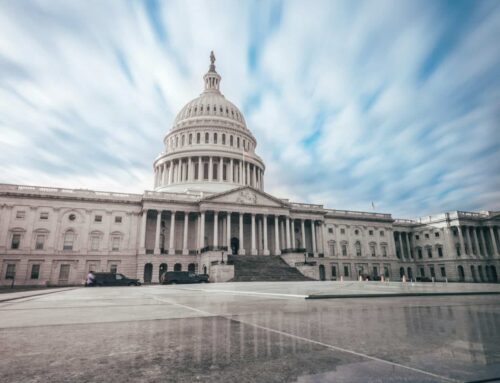For the first time in five years, Congress has not finished a single spending bill on time.
Lawmakers like to wax poetic about Congress’ constitutional power of the purse when defending earmarks and other budgetary goodies. Instead of debating constitutional theory, lawmakers need to roll-up their sleeves and get to work.
Speaking of the Constitution, providing funding for the federal government is one of Congress’ only constitutionally-mandated responsibilities. While there have been some justifiable complaints about the Presidents failure to veto even one spending bill over the last six years – while at the same time earmarks and federal spending exploded – the current Congressional leadership hasn’t even given him a bill to veto. The kicker is that the President has threatened to veto 9 of the 12 unpassed bills because of differences over policy provisions or spending levels.
The House has passed all twelve of its spending bills, but the Senate has passed only five. And it doesn’t appear that any of the few bills that have passed both chambers are ready to be sent to the President. It is not even clear if the House and Senate are meeting to reconcile any of the bills.
Not since the 1995 showdown has the nation’s budget been in such disarray. Congress and the President bought themselves breathing room this year with a continuing resolution—a measure that will fund the government until November 16th. That gives them six weeks to finish the work they haven’t completed in the last six months.
Some Democrats want to package most of the remaining appropriation bills together; either into one large omnibus spending measure or into a few smaller ones. Republicans are starting a push the idea of a year-long continuing resolution to fund the agencies at last year’s levels. Most of the federal government actually spent all of FY07 operating under a year-long continuing resolution (with the notable exception of the Departments of Defense and Homeland Security, for which spending bills were completed last year).
Neither of these proposals is the answer. While the nation waits for lawmakers to get to work, both of those options are capitulations that Congress cannot get its work done. Omnibus spending bills end up as enormous, feet-tall piles of legislation that no one has the chance to skim, much less fully read and understand, prior to passage. And history has taught us that these monstrosities are invitations to mischief.
Another continuing resolution isn’t the answer either. Much as we liked the fact that the FY07 continuing resolution left the vast majority of earmarks on the cutting room floor (only the DOD and DHS earmarks remained), auto-funding government year after year is not responsible governance.
Congress needs to get these bills passed and sent to the President. If he chooses to veto any of them, taxpayers and voters expect Congress and the White House to sit down and hammer out their differences like grownups. That’s how the Founding Fathers envisioned our democracy working. Instead of overheated rhetoric on both sides of Pennsylvania Avenue, Congress and the President should follow the plan James Madison wrote.










